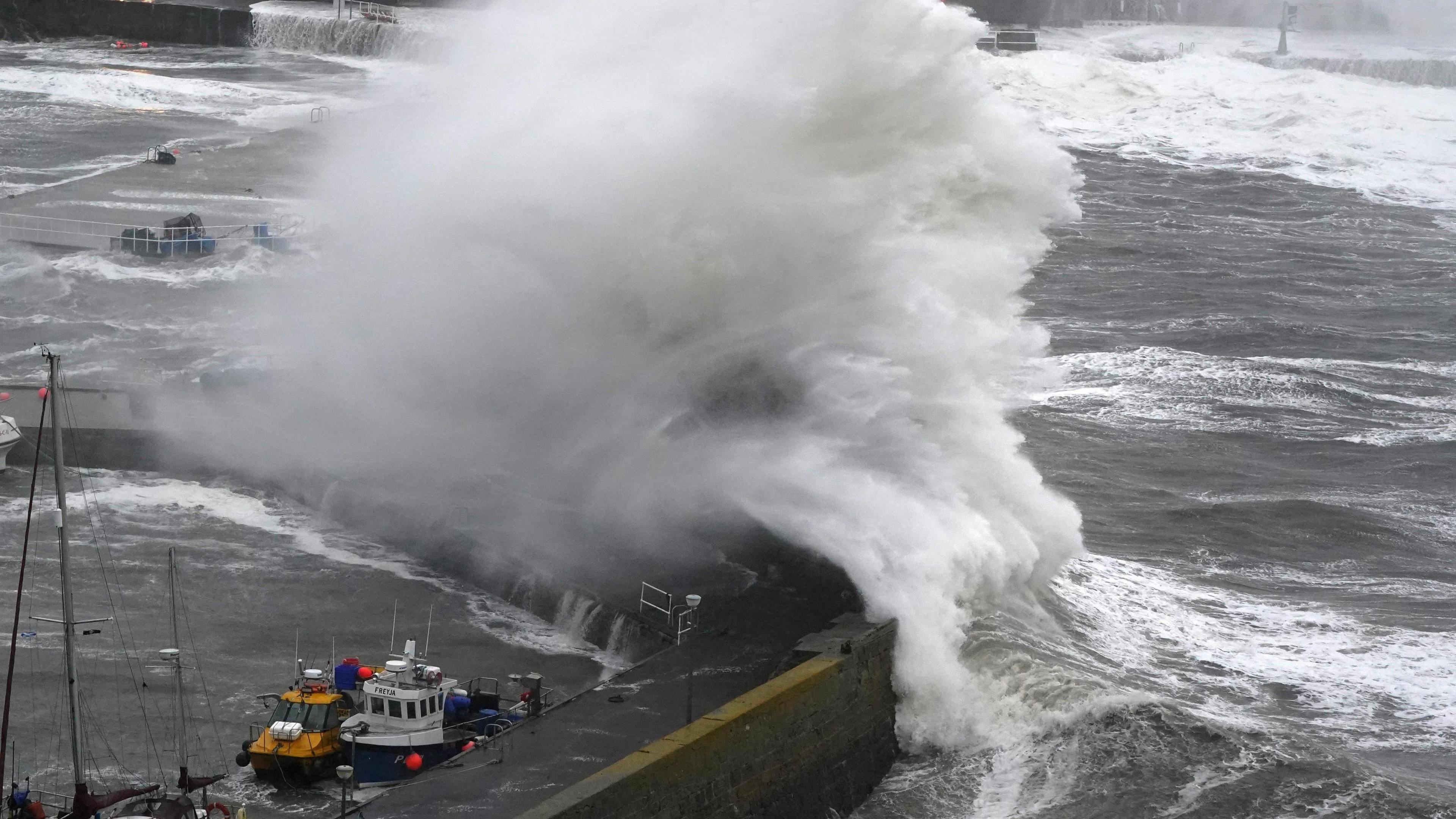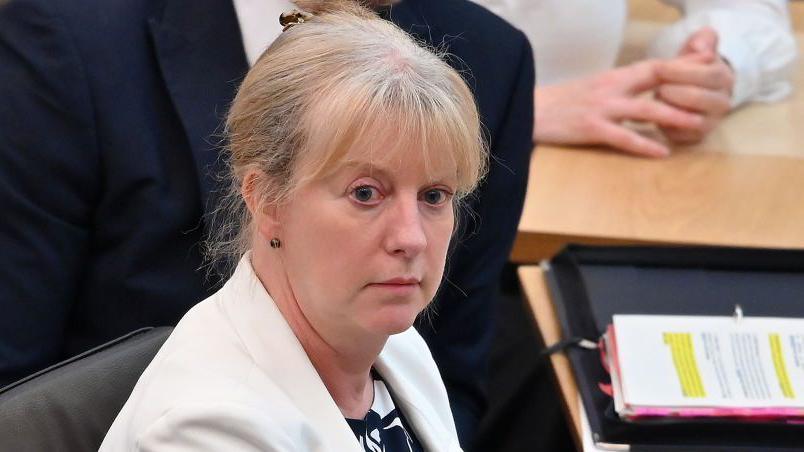Grim spending forecast suggests stormy times ahead

- Published
Not yet out of a disappointing, cloudy summer, we are being warned of a grim autumn.
That's not a weather forecast and nor is it the state of the economy, where the private sector has regained some optimism on the back of lower inflation and falling interest rates.
The tough times ahead are more about public finances. The prime minister has warned us in a speech that "things will get worse before they get better".
And the Scottish Fiscal Commission - Scotland’s official, independent economic and fiscal forecaster - has concluded that the Scottish government's own decisions are to blame for “much of the pressure" facing the country's finances
Shona Robison, the finance secretary, will start the new term at Holyrood with a financial statement that sets out in-year cuts.
She has already told her ministerial colleagues that non-essential spending should be stopped. There is a recruitment freeze for all but the most pressured jobs in the NHS.
The communications budget has been completely cut for the rest of the year. They may not win much public sympathy but Scotland's advertising businesses will feel that chill - the Scottish government is an important client.
We are beginning to get a sense of the way Ms Robison's emergency brake is going to hit the public sector and those behind it that depend on government funding.
Actors ended the Edinburgh festivals season with a direct appeal to audiences to help the arts sector retain a grant scheme for individual creatives.
That's because Creative Scotland has not waited to find out what Ms Robison has to tell MSPs. It's assuming there's a cut coming and is pre-empting its effect.
Even the bigger and most successful organisations, such as the Edinburgh International Festival, are saying they have never seen it so bad, not knowing what funding they will have when their financial year starts in November.

The final night of the Fringe Festival in Edinburgh was marked by protests against cuts to arts budgets
Local government has its own mandate and this is where much of the political noise can be expected.
Ms Robison's priority has been to avoid a local government staff strike, which would have seen bins left uncollected but which went far beyond refuse and recycling workers.
Public finance experts, such as those at the Fraser of Allander Institute, external, point out that she was unprepared for public sector pay claims coming in well above the 3% limit she set.
They might have been more affordable if they were at least partly self-funding through attached conditions aimed at improving public sector productivity. But neither Holyrood nor Westminster has set conditions on the deals agreed so far.
The deal on offer for local government staff is not funded, in that it will require councils to dig into other budgets.
BBC Scotland has learned of consequent cuts to a fund for helping those at risk of being left behind if they don’t get access to the internet, a big chunk of funding allocated to coastal defences and a nature restoration fund.
At £5m, the latter is just over a sixth of the annual total, and a relatively minor amount. But as one of the capital funding projects, with more to come from day-to-day budgets, it sends a signal and fires up environment campaigners.
Invariably, those who lose out make more noise about it than those who gain. And those who gain - members of local government unions - are far from certain to vote for the pay offer.

Budgets for nature restoration and environmental work are coming under attack
The proposal indicates an easing of the ring-fenced funding that is passed from the Scottish government to councils.
Some is formally ring-fenced, in that ministers require it to be spent on their preferred or legislated programmes, such as £522m allocated this year to expansion of early learning and childcare.
Much more than that is informally ring-fenced. The Accounts Commission, watchdog for council spending, estimates about a quarter of Scottish government grants to councils is ring-fenced in some way.
Councils say the extent of controls over their spending go far beyond that because they have statutory duties to provide schooling and social work, and these kinds of things are expensive.
These controls have long been a source of friction between Holyrood and local authorities. Councillors thought they had won more freedom to set their own priorities and that they were going to get multi-year budgets to help them plan, but neither has happened.
So relaxing some of the requirements on spending, such as the nature restoration grant scheme, will help lower the temperature when ministers meet council leaders.
Playing the blame game
Where will the spending pressure be felt next? The voluntary and third sector providing public services is vulnerable to funding cuts from both Scottish and local government.
The sector typically delivers important services, from social care to mental health support, direct to the public, employing staff on year-to-year contracts, rarely matching the pay, pensions and job security of those directly employed by government.
The battle so far is about in-year cuts for 2024-25, removing funds for spending due to take place before next April. The budgets for next financial year are also being drawn up, and look no less daunting for finance ministers in Westminster and Holyrood.
As MSPs prepare to return to Holyrood next week, and as MPs get used to the changed terrain dominated by Labour at Westminster, skirmishes over the looming squeeze aim to shift blame.
Sir Keir Starmer talks of the "rubble and ruin" left by outgoing Tories. They respond that their economic legacy was about to start an upswing, and Labour's preparing us for tax increases.
Labour's Scottish leadership wants to pin the blame on SNP "mismanagement" of public funds, criticising higher income tax. The SNP is eager to warn of Labour "austerity".
Stepping back from the blame game, what does all of this mean for the future shape of the public sector?
If it is to become smaller, in headcount and tax take, can it become more productive and efficient? Or will we have to adapt to lower expectations of what it delivers?
If it is to be reformed - perhaps a smoother patient journey through the NHS, or less rigidity in the Scottish teachers' working contract - what would that look like?
What would it cost to secure those reforms in terms of pay?
And what would those of us who use public services expect at the end of it?
Related topics
- Published19 August 2024

- Published18 August 2024

- Published14 August 2024
